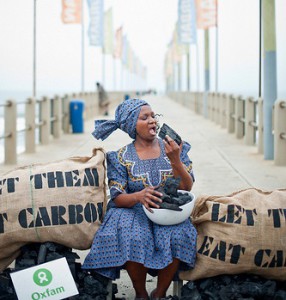Filling the blank climate page after Durban
This blog was written by David Waskow, climate change program director. I’ve been mulling the blog—“Climate deal leaves a blank page”—that I posted the other day following the UN climate conference in Durban. As I said, we turned an important page in Durban, and yet it’s still clearly the case that we are looking at […]
This blog was written by David Waskow, climate change program director.
I’ve been mulling the blog—“Climate deal leaves a blank page”—that I posted the other day following the UN climate conference in Durban. As I said, we turned an important page in Durban, and yet it’s still clearly the case that we are looking at a next page that’s blank. The basic question that we face now is what to do with that page.
We could look at in despair. Not helpful. Or, we could decide that it’s up to us to fill that page, and to get our political leaders to do so in the ways that are necessary.

We could be angry that the page was left blank, without clarity on where we’re headed on emissions cuts or climate finance. Or, we can be hopeful about the opportunity we have now to fill a new page. Either response is justifiable. But either way, we need to mobilize ourselves—in hope or in anger or both—to make sure that page is filled in the best way imaginable.
To do that, the legal agreement which countries (including the United States) have said they will negotiate must become a strong and fair one, while increased action to cut emissions must start sooner than 2020 as well. And the ledgers of the Green Climate Fund must be filled. That will require our energy—and alarm bells, as I said earlier this week—to press for serious cuts in emissions, to put equity at the center of climate policy, and to generate new sources of finance for those hardest hit by climate impacts.
We have no choice but to tackle those challenges because of the severe consequences for vulnerable communities if we don’t.
Yesterday morning, the Sierra Club’s Fred Heutte commented on a listserv about the Durban outcome with a different, but still apt, analogy. “It is not a half full or half empty glass, it is the commitment to have a glass, and its shape, integrity, durability and whether it gets filled at all is what we now have to work on…”